‘Personal Notions of White Supremacy’
Trump Wants Payback Against MSNBC for Criticism
Medhi Hasan Loses Show in MSNBC Shakeup
Unsealed Videos Show Violence Against Inmates
Columnist’s Advice: Don’t Hold Back About Racism
Asian Americans Say They Face Racism Three Ways
CBS: Child Labor Used in Making Mars Candy
Sean Combs Steps Down as Chairman of Revolt
‘George Floyd’ Book Censors Hadn’t Read It
Local Media, Funders Must Reclaim Religion Beat
In Mexico, 5 Journalists Shot in One Day. Why?
Short Takes: Charles M. Blow film; Alfredo Corchado; Ciera Crawford and Nick Charles; Karen Rundlet; Forbes magazine’s “30 Under 30” media list; Kristen Welker and other National Press Club honorees; The Atlantic’s Reconstruction issue; Reporters Without Borders Press Freedom Prize; Claudia Julieta Duque; Ghana’s media landscape; Nigeria rebuked on free expression.
Homepage photo: Kissinger and Egyptian President Anwar Sadat in Sadat’s house nearby the Giza Pyramids. (Credit: ahram.org.eg)
Updated Dec. 1, Dec. 2
Support Journal-ismsDonations are tax-deductible. On Facebook, please support Journal-isms Inc. for Giving Tuesday or on Go Fund Me at Fundraiser by Richard Prince : Richard Prince’s Journal-isms (gofundme.com)
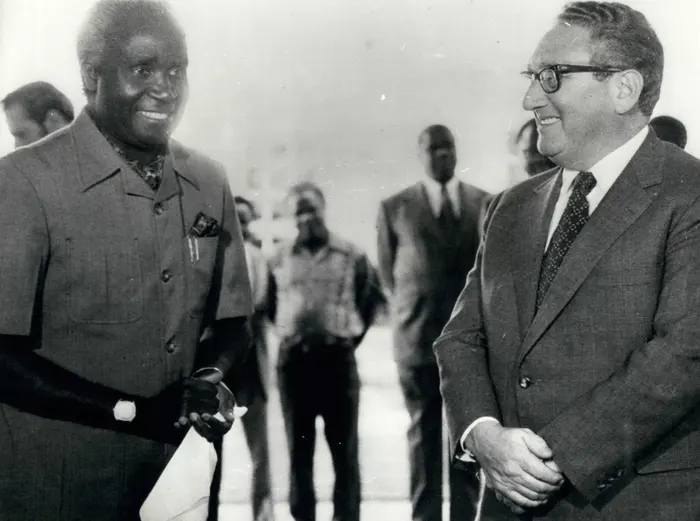
‘Personal Notions of White Supremacy’
The late Les Payne, the columnist and editor at Newsday who died in 2018, was not known for being shy in print. On April 10, 1994, the Long Island, N.Y., newspaper published the column below about Henry Kissinger, the former secretary of state who died Wednesday at 100, that sticks in the memory. Payne was also a co-founder and president of the National Association of Black Journalists, and won a Pulitzer Prize posthumously in 2021 for “The Dead Are Arising: The Life of Malcolm X,” written with his daughter, Tamara Payne.
By Les Payne
THE CHOICE of Henry Kissinger to negotiate the impasse between the two warring black factions in South Africa recalls nothing so much as the fox guarding the hen house.
Nothing in their bloody 10-year civil strife has prepared African National Congress President Nelson Mandela and Inkatha Chief Mangosuthu Buthelezi for the Great One. News of the assignment last week sent the right-wing Sunday Telegraph soaring with a recollection of the long-dormant Kissinger as “The Grand Thaumaturge who once
ceaselessly circled the world . . . promoting spurious peace arrangements.”
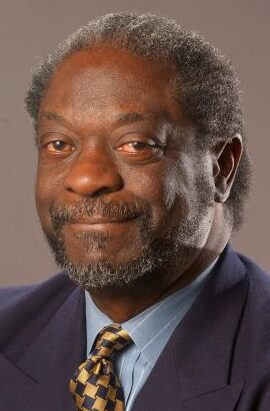 The former secretary of state was invited in as mediator, along with Lord Carrington and Paul Kervenhorster, a German political scientist, by both the ANC and Inkatha. The gesture was intended, sources say, to appease Buthelezi’s push for an international stage to mediate his threatened boycott of the election. Should internal negotiations defuse the constitutional crisis, Kissinger and his international team may never swing into action.
The former secretary of state was invited in as mediator, along with Lord Carrington and Paul Kervenhorster, a German political scientist, by both the ANC and Inkatha. The gesture was intended, sources say, to appease Buthelezi’s push for an international stage to mediate his threatened boycott of the election. Should internal negotiations defuse the constitutional crisis, Kissinger and his international team may never swing into action.
As a foreign policy executor in the 1970s, Kissinger had a dual and contradictory relationship with sub-Sahara Africa. With President Gerald Ford, he set about to undo the very U.S. policy he had championed as Richard Nixon’s national security adviser. In his biography, “Kissinger,” Walter Isaacson wrote: “This chameleon-like ability to embrace views that first seemed alien to him testifies to his cleverness.”
Duplicitous, not clever, was how African leaders perceived Kissinger during his 1976 shuttle visits. They accused him of saying one thing to the president of Kenya and the opposite to, say, the president of Tanzania. They also sensed in the Great One a condescension, tinged with racism.
He reportedly spiked his lectures to Tanzania President Julius Nyerere, one of the world’s foremost statesmen, with references to Shakespeare. In time, Nyerere let the Eurocentric professor in on the fact that he, himself, was a Shakespearean scholar. He had translated the “Merchant of Venice” and other of the bard’s works into Swahili.
Kissinger’s chief contribution to African policy stems from his 1969 recommendation in the notorious National Security Study Memorandum 39.
Dubbed the “Tar Baby option,” this hypocritical policy, which Nixon approved, urged support for apartheid Rhodesia and South Africa because “the whites are here to stay and the only way that constructive change can come about is through them. . . . We would maintain public opposition to racial repression but relax political isolation and economic restrictions on the white [minority-ruled] states.”
While serving as architect of U.S. policy toward Africa, Kissinger, according to Pulitzer Prize-winning journalist Seymour Hersh, gave every indication that he held personal notions of white supremacy. He, Alexander Haig and their boss, Nixon, according to Hersh’s biography of Kissinger, “The Price of Power,” operated a national security
locker room where racist epithets were the rule.
“Kissinger repeatedly made clear his lack of respect for the intelligence of blacks,” Hersh wrote. “When the State Department appointed C. Clyde Ferguson, a black law professor from Rutgers University, special relief coordinator during the Nigerian civil war, Kissinger asked fatuously, ‘Do you think he’ll understand the cables?’ “
Another preoccupation of the Great One seemed to have been odor. “Henry can’t stand the smell [of blacks],” Alexander Haig was quoted by Hersh as saying. And, reported Hersh, Kissinger confirmed the notion in a discussion with Sen. J. William Fulbright prior to a dinner with African ambassadors: “I wonder what the dining room is
going to smell like?”
Throughout the Nigerian civil war, Kissinger maintained in his tight intelligence circles that the Ibos were necessarily less “gifted and accomplished” because they were more “Negroid” than the other, more “Semitic,” tribes of Nigeria.
In mediating the South African impasse, determining the relative “Negroid” quotient of Inkatha members vs. Mandela supporters may well be Kissinger’s first official act.
- Spencer Ackerman, Rolling Stone: Henry Kissinger, War Criminal Beloved by America’s Ruling Class, Finally Dies
- American Archive of Public Broadcasting: The MacNeil/Lehrer Report; Henry Kissinger in Africa (Sept. 22, 1976)
- Peter Beaumont, the Guardian: Kissinger at 100: Kissinger at 100: How his ‘sordid’ diplomacy in Africa fuelled war in Angola and prolonged apartheid (May 25)
- Jamelle Bouie, New York Times: Kissinger’s Dirty Work Abroad Hurt America at Home, Too (Dec. 1)
- Herb Boyd, New York Amsterdam News: Little empathy for former Secretary of State Kissinger (Dec. 2)
- The Guardian and agencies: Kissinger ‘regrets’ slur against Indians (2005)
- Emil Guillermo, Asian American Legal Defense and Education Fund: Henry Kissinger; A.I. doomsday closer than thought; plus the humanity of the PEN Oakland Awards
- Foster Klug and Geir Moulson, Associated Press: Henry Kissinger’s complicated legacy draws admiration and scorn from across the globe
- Clarence Page, Chicago Tribune: Coming to terms with Henry Kissinger’s legacy — it’s complicated (Dec. 1)
- Peter Vale, The Conversation (South Africa): Henry Kissinger: How his diplomacy in Africa prolonged SA apartheid (May 25)


Trump Wants Payback Against MSNBC for Criticism
“Former President Donald Trump’s attacks on the media are central to his image, but he’s once again calling on the federal government to take action against NBCUniversal for its MSNBC criticism of him,” Ted Johnson wrote Wednesday for Deadline.
Coindentally, MSNBC has been “the No. 1 most-watched cable network among African American viewers for 25 consecutive months,” the network announced in February.
Johnson continued, “In a late night post on his social media platform Truth Social, Trump complained that MSNBC ‘uses FREE government approved airwaves, and yet it is nothing but a 24 hour hit job’ on him and ‘the Republican party for the purposes of ELECTION INTERFERENCE.’
“He also attacked Brian Roberts, the CEO of NBCU parent Comcast, as a ‘slimeball who has been able to get away from these constant attacks for years.’
Tom Jones wrote Thursday for the Poynter Institute, “It doesn’t take a First Amendment scholar to see that Trump is threatening a cable news network just because they criticize him, just because he doesn’t like them.
“Aren’t those the kind of things they do in countries with dictators? . . .
“Now, to be clear, MSNBC does not use public airways, as Trump wrote. It’s a cable network. But Brian Roberts, who Trump mentioned, is the chairman and CEO of Comcast, which owns NBC. And NBC does use public airways. . . .
“CNN commentator David Axelrod tweeted, ‘I think we owe it to Trump to take his words seriously. He would use the power of government to punish media outlets who do critical reporting about him. Where are those who speak reflexively about fidelity to the Constitution but apparently have not read it?’ ”
Meanwhile, thanks partly to alumna Rashida Jones, president of MSNBC, Hampton University’s Scripps Howard School of Journalism and Communications was to present $94,000 in scholarship awards to 13 students Wednesday during a lunchtime Student Town Hall meeting.
“The scholarships are donations from the Scripps School’s partnerships with Rashida Jones, president of MSNBC, NBCU Academy Fellows Fund, and the Dow Jones News Fund,” a news release said.
“ ‘Giving back to my alma mater, Hampton University and Scripps Howard School of Journalism and Communications, is what it’s all about for me,’ said Rashida Jones, who graduated from the Scripps School in 2002. ‘I believe it is important to support our students and help them on their journey to becoming successful journalists and strategic communicators.’ ”
Jones was to join the Student Town Hall meeting virtually.
- Jamelle Bouie, New York Times: Trump Wants Us to Know He Will Stop at Nothing in 2025 (Nov. 14)
- Charles M. Blow, New York Times: The ‘Trump Isn’t So Bad’ Mind-Set
- Tommy Christopher, Mediaite: CNN’s Chris Wallace Stunned By Trump Revelations In Bombshell Cheney Book
- Matt Gertz, Media Matters for America: Major news outlets gave much less coverage to Trump’s “vermin” attack than they did Clinton’s “deplorables” remark
- Colby Hall, Mediaite: Trump Hits Back at WSJ for Ridiculing His Failure to Understand the Success of Obamacare: ‘The Globalist “Paper” Sucks’
- Fabiola Santiago, Miami Herald: Trump calls his foes ‘vermin’ and evokes another tyrant: To Fidel Castro, we were worms (Nov. 14)
- Niall Stanage, The Hill: The Memo: Trump’s blast at MSNBC — empty threat or real danger? (Dec. 1)
Medhi Hasan Loses Show in MSNBC Shakeup
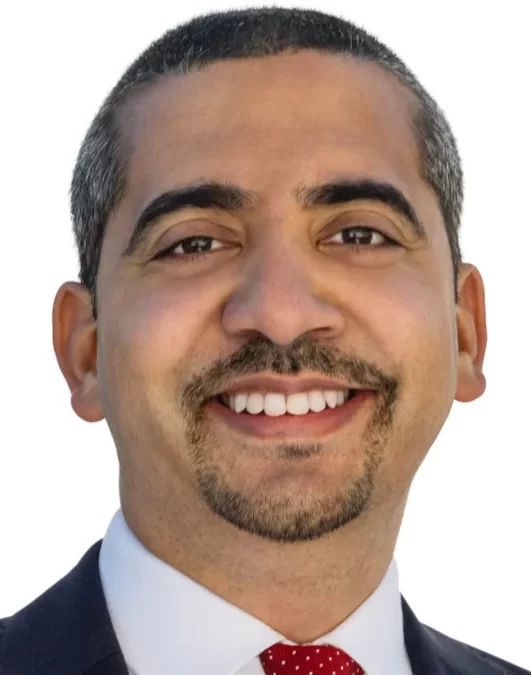 “MSNBC is making big programming changes to its weekend lineup, debuting a new ensemble program ‘The Weekend’ in January and replacing Mehdi Hasan’s (pictured) show,” Natalie Korach reported Thursday for The Wrap.
“MSNBC is making big programming changes to its weekend lineup, debuting a new ensemble program ‘The Weekend’ in January and replacing Mehdi Hasan’s (pictured) show,” Natalie Korach reported Thursday for The Wrap.
“Although the Sunday ‘The Mehdi Hasan Show’ will be replaced on MSNBC by Ayman Mohyeldin, Hasan will remain at the network as a political analyst and occasional fill-in host. Mohyeldin’s show will expand to four hours on Saturdays and Sundays.
“The network is also launching a new ensemble program ‘The Weekend’ hosted by anchors Alicia Menendez, Symone Sanders-Townsend, and Michael Steele on Saturdays and Sundays from 8 – 10 a.m. ET. . . .
“Other changes to MSNBC’s weekend lineup include, Alex Witt expanding her breaking news coverage from 1 p.m. to 4 p.m. She will take over Yasmin Vossoughian’s programming hour, who will remain with the network as a national reporter. . . .
“Jonathan Capehart will move his program to 6 p.m. on Saturdays and Sundays. Katie Phang will also be shifting to Saturdays at noon ET, in an effort to complement ‘Inside with Jen Psaki‘ in the same time slot on Sundays. . . .
- Justin Baragona, Daily Beast: Mehdi Hasan Publicly Addresses His MSNBC Show’s Cancellation (Dec. 1)
- Jeremy Barr, Washington Post: MSNBC draws backlash for canceling Mehdi Hasan show
- Eric Bazail-Eimil, Politico: Progressives criticize MSNBC for canceling Mehdi Hasan show

Unsealed Videos Show Violence Against Inmates
“In one video, a jailer kneels on an inmate’s neck. In another, two deputies slam a man’s head into a wall. In yet another, two jailers punch a handcuffed inmate repeatedly — even after he’s fallen to the ground,” Keri Blakinger and Maria L. La Ganga reported Nov. 10 for the Los Angeles Times.
“A new trove of surveillance videos from inside the Los Angeles County jails offers a rare view of the culture of violence that has persisted behind bars despite a decades-long federal lawsuit and years of jail oversight.
“The release of the six videos comes months after The Times and independent news site Witness LA asked a federal judge to make them public. Lawyers for the county fought to keep the footage confidential, but after a hearing this fall, U.S. District Court Judge Dean Pregerson ordered the material to be released. . . .”
- C.R. Addleman, Prison Journalism Project: Even in Prison, White Privilege Thrives (Oct. 25)
- Associated Press: The story so far: AP’s investigation into federal prisons (May 5, 2022)
- Alex Busansky and Miriam Aroni Krinsky, Los Angeles Daily News: Will the Los Angeles County Sheriff’s Department finally be held accountable?
- Editorial, Los Angeles Times: Derek Chauvin stabbing is an indictment of U.S. prison system
- Reporters Committee for Freedom of the Press: Unsealed surveillance footage shows violence against inmates inside Los Angeles County jails
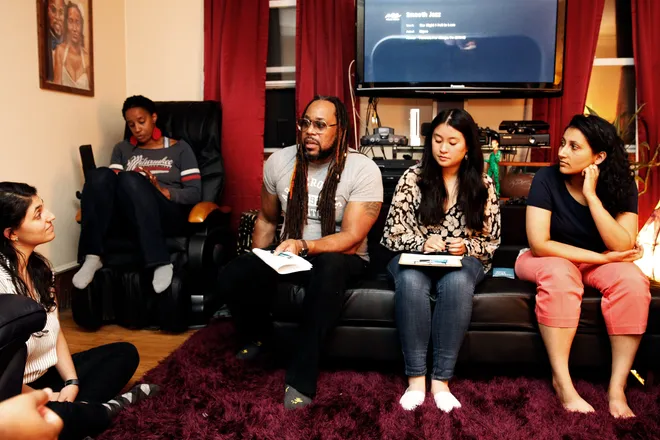
Columnist’s Advice: Don’t Hold Back About Racism
“A few months ago, I received an old-school mailed letter with a cut-out copy of my column on the annual Daddy-Daughter dance,” James E. Causey wrote Wednesday for the Milwaukee Journal Sentinel. “I talked about the great times I had with my daughter at this event until she aged out. The sender, presumably a subscriber since it was a paper copy, crossed out the word Black, replacing it with the N-word repeatedly.”
At one point, Causey wrote, he decorated his cubicle with more such bile. “Instead of keeping the letters a secret, I gave them prominence. I took a stack of them and pinned them on the wall beside my Malcolm X poster.
“I still didn’t reach out to my editors to ask them for advice, or help or just to let them know what I was facing. But when people stepped into my cubicle and asked about the pinned-up stack of letters, I told them it was my ‘Wall of Hate.’
“To make the wall, the letters needed to be handwritten or typed. They needed to call me or people in the Black community the N-word more than once or use other loaded racial terms like ‘coon,’ ‘porch monkey,’ ‘you people,’ ‘ape,’ and my favorite ‘race baiter.’ . . .
“Ask any Black journalist if they have a similar story, I’ll bet the answer is yes. We don’t discuss it, but it’s time to change that. If anything, the hatred has become more overt . . . more persistent and, thanks to social media, easier to spew from the shadows.
“I’ve long kept the scale of the racist hatred I receive to myself, often not telling my editors about it. But I have come to realize how corrosive that is. Picture an old house weathered by decades of rain, snow, hail, and other harsh elements. You don’t notice the changes month-to-month or even year-to-year, but when you look at an old photo, you realize how worn it has become.”
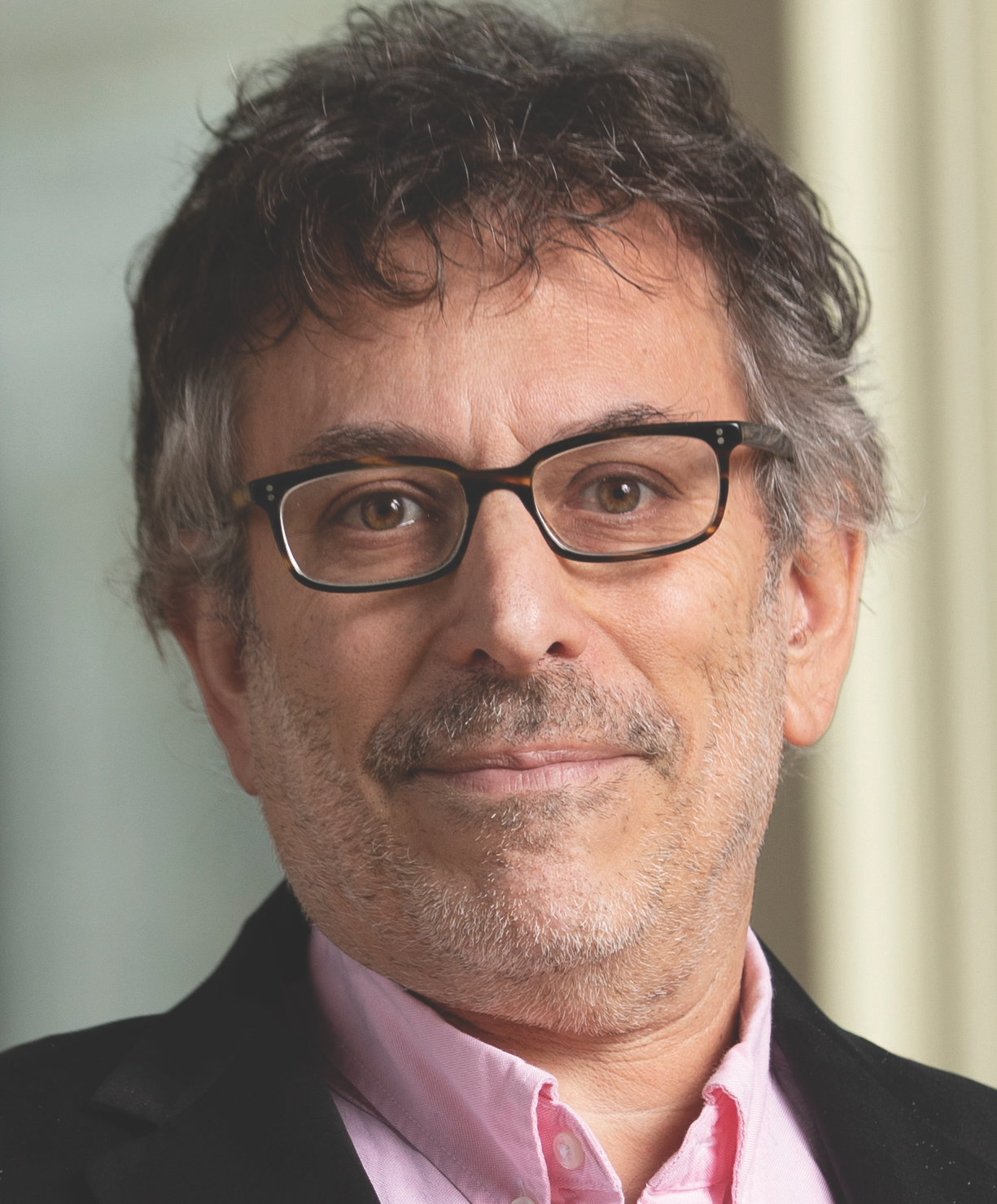 Causey also wrote, “Newsroom leaders should be having conversations about race and racism and checking in on their reporters and editors of color often, said Bruce Shapiro (pictured), executive director of the Dart Center for Journalism and Trauma, a training institute and innovation think tank for news professionals covering violence and trauma.
Causey also wrote, “Newsroom leaders should be having conversations about race and racism and checking in on their reporters and editors of color often, said Bruce Shapiro (pictured), executive director of the Dart Center for Journalism and Trauma, a training institute and innovation think tank for news professionals covering violence and trauma.
“Why? Because today’s journalists of color won’t tolerate hate like I did. They will call it out. They will use their social media platforms to address it, and if things don’t change or newsroom leaders fail to address it, they will leave.
“ ‘What you encountered as a journalist, a reporter in their 20s will not take that kind of abuse,’ he said. ‘Nor should they.’ . . .”
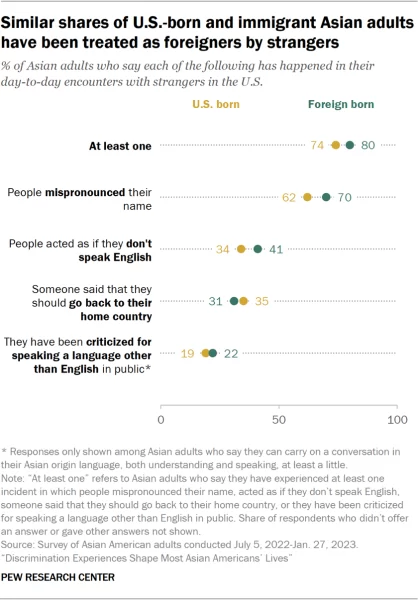
Asian Americans Say They Face Racism Three Ways
“Today, 57% of Asian adults see discrimination against Asians living in the U.S. as a major problem,” Neil G. Ruiz, Carolyne Im and Ziyao Tian reported Thursday for the Pew Research Center. “And 63% say too little attention is paid to race and racial issues concerning Asian Americans, according to a new analysis of a multilingual, nationally representative survey of 7,006 Asian adults conducted from July 5, 2022, to Jan. 27, 2023.
“For many Asian Americans, discrimination experiences are not just single events, but instead come in several often-overlapping forms. Overall, the survey showed that most Asian Americans experience discrimination in three broad ways: Those related to being treated as a foreigner (even if they were born in the U.S.); being seen as a model minority; and other discrimination incidents in day-to-day encounters or because of their race or ethnicity. . . . “
- Asian American Journalists Association: AAJA Announces Launch of 2024 Scholarships, Internships and Fellowships
CBS: Child Labor Used in Making Mars Candy
“In the blistering heat, CBS News found children in Ghana as young as 5 years old using machetes nearly as big as themselves to harvest the cocoa beans that end up in some of America’s most-loved chocolates,” Debora Patta, Sarah Carter, Javier Guzman and Kerry Breen reported Wednesday for CBS News.
“Our team traveled across Ghana’s remote cocoa belt to visit small subsistence farms that supply the U.S. chocolate giant Mars, which produces candies including M&Ms and Snickers.
“We found children working at each one of the farms — despite the company’s vow to have systems in place to eradicate child labor in its supply chain by 2025.
“Mars has also boasted about rescuing thousands of children, who are listed as beneficiaries of what it calls a robust monitoring system meant to keep children off cocoa plantations and in schools.
“CBS News exclusively obtained copies of these lists from a whistleblower and was able to confirm that some of the listed children were still working in the fields. . . .”
Sean Combs Steps Down as Chairman of Revolt
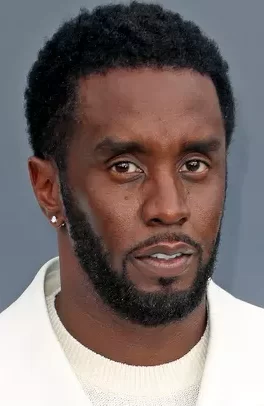 “In the wake of three lawsuits alleging sexual assault, Sean ‘Diddy’ Combs (pictured) has temporarily stepped aside as chairman of Revolt, the music-oriented television network he co-founded in 2013. Representatives for Combs confirmed the news to Variety, Ethan Shanfield reported Tuesday for Variety.
“In the wake of three lawsuits alleging sexual assault, Sean ‘Diddy’ Combs (pictured) has temporarily stepped aside as chairman of Revolt, the music-oriented television network he co-founded in 2013. Representatives for Combs confirmed the news to Variety, Ethan Shanfield reported Tuesday for Variety.
“A statement posted to Revolt’s Instagram page reads, in part: ‘Sean Combs has stepped down from his position as chairman of Revolt. While Mr. Combs has previously had no operational or day-to-day role in the business, this decision helps to ensure that Revolt remains steadfastly focused on our mission to create meaningful content for the culture and amplify the voices of all Black people throughout this country and the African diaspora.’
“Earlier this month, R&B singer Cassie accused Combs of raping and beating her over the course of a decade. Cassie, whose real name is Casandra Ventura, previously recorded for Combs’ Bad Boy record label. Just one day after the suit was filed, Ventura and Combs reached a settlement.” . . .
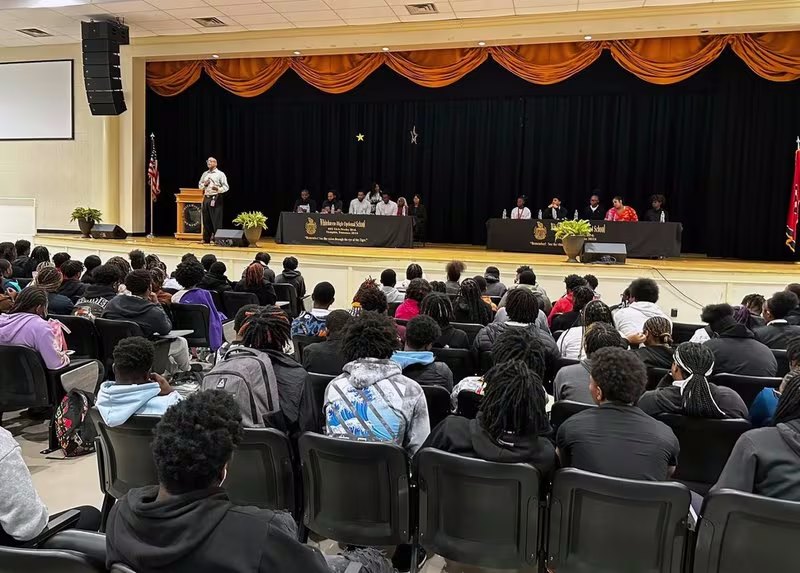
‘George Floyd’ Book Censors Hadn’t Read It
The Memphis authorities who let high school students hear from Robert Samuels and Toluse Olorunnipa, authors of “His Name Is George Floyd,” but prevented them from reading excerpts because the book was not “age-appropriate,” hadn’t even read the book, Samuels, a New Yorker staff writer, wrote Monday.
Cathryn Stout, the spokesperson for the school district, “admitted that no one involved in the decision had actually
read it. The district’s academic department didn’t have time, she said. A staff person in the office searched for it in a library database, noting that the American Library Association had classified it as adult literature. That was enough to make the call.
“I described this rationale to Donna Seaman, the adult-books editor for Booklist, the A.L.A.’s publication for reviews. She told me the Memphis district’s reasoning seemed ‘bizarre.'” . . .
“These were the reverberating effects of censorship laws: an academic department in a majority-Black school system casually rejecting a book about the life of George Floyd; nonprofit groups capitulating to avoid dcausing controversy; writers having to resort to back channels to get information to Black people in the South,” Samuels wrote.
Spoiler alert: “The next day, Stout sent another e-mail. She wanted us to know that the school district had decided to order copies of ‘His Name Is George Floyd,’ so it could be placed under academic review. If the book is deemed appropriate, the district plans to put it in the Whitehaven High School library. She had no idea how much time it would take to make the determination.”
Local Media, Funders Must Reclaim Religion Beat
“As the war between Israel and Hamas rages on, U.S. national media is reporting on a wave of antisemitic and Islamophobic attacks here at home. Anger and violence seem to be spreading, and the Anti-Defamation League and Council on American-Islamic Relations say these incidents are surging to levels not seen in years,” Deborah Caldwell, publisher and CEO of Religion News Service, wrote Thursday for the Poynter Institute.
“As I read these reports, I keep returning to one thought: local media must reclaim the religion beat. . . . while funders consider many worthy local journalism projects — expanded coverage of town councils, boards of education, state legislatures, and BIPOC communities — it’s time to add religion to the list.
“Today, in the United States, there are only a few dozen reporters in the entire country covering religion full-time for mainstream media — locally, regionally and nationally. Back in the 1990s, there were more than 500 members of the Religion News Association . . . .”
- Journal-isms: What Happened to the ‘Church Page’? (Oct. 18)
- Lea Skene and Tiffany Stanley, Religion News Service: In the US, Black survivors are nearly invisible in the Catholic clergy sexual abuse crisis
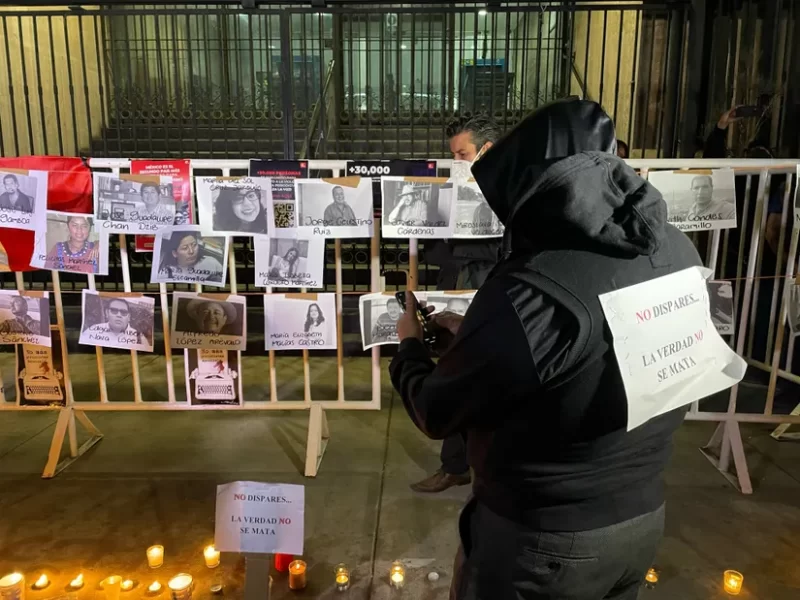
In Mexico, 5 Journalists Shot in One Day. Why?
“Mexico’s president said Wednesday that two of four news photographers who were shot Tuesday are in serious condition, as prosecutors confirmed that a fifth journalist was shot and wounded the same day,” the Associated Press reported.
“The four photojournalists were shot near a military barracks in the southern Guerrero state after they returned from a crime scene. They had been covering one of the many homicides that occur on a near-daily basis in the violence-wracked city of Chilpancingo. . . .”
“Another shooting Tuesday in the neighboring state of Michoacan wounded reporter Maynor Ramón Ramírez, bringing the number of victims to five and marking one of the largest one-day tolls of media workers in a decade.
The same day, the Columbia Journalism Review published a piece by Joel Simon, longtime press freedom advocate, about a workshop at the recent Inter American Press Association conference in Mexico City. Simon asked, “So why has Mexico been so uniquely unable to protect journalists from violence?
Among the answers: “ ‘Impunity is a form of corruption that has existed for a long time and permeates all levels of government,’ said Daniel Rosas, a top editor at El Mañana in Nuevo Laredo, who is still affected by the murder of a colleague nearly two decades ago. ‘It will be very difficult to overcome, because people have lost confidence in the authorities. There’s no accountability.’
“Sara Mendiola, a lawyer and the executive director of Propuesta Cívica, has also been involved in the fight against impunity and through her legal efforts helped secure convictions in two key cases: the 2017 murders of Javier Valdez in Sinaloa and Miroslava Breach in Chihuahua. But Mendiola calls such cases exceptions and notes that many prosecutors across the country have been corrupted by organized crime.
“Jan-Albert Hootsen, the Mexico representative for the Committee to Protect Journalists (where I served as executive director for many years), believes that, ironically, criminal justice reform in Mexico has complicated efforts to bring the killers of journalists to justice. Legal reforms intended to protect suspects from police abuse and improve respect for the rule of law have created higher evidentiary standards that Mexico’s woefully unprepared prosecutors struggle to meet. With escalating violence across the country, ‘impunity is now the norm,’ Hootsen told me. ‘You have an entire generation of police officers, of prosecutors, of lawyers, of judges, but also of citizens who simply take it for granted.’ . . . ”
Short Takes
- In an HBO Max documentary, “South to Black Power,” which debuted Tuesday, New York Times columnist Charles M. Blow calls for Black Americans to move to the South to gain political footholds.
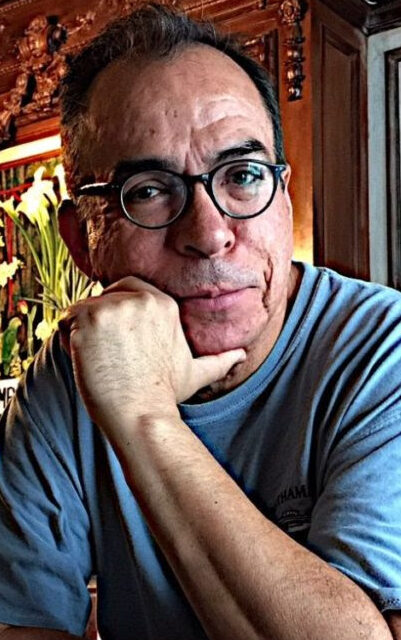 “2023 was a year of awards, recognition, and now, sadly, the end of an era. These are my last days at dallasnews.com, my professional home for more than 30 years,” Alfredo Corchado (pictured) wrote Monday on X, formerly Twitter. “Took a buyout in hopes of saving jobs, helping next generation. I’ve given it my all — COVID 19, PTSD notwithstanding. Put my life on the line to tell stories in regions of silence in Mexico. Immensely proud of work published. . . .” “Corchado has covered U.S.-Mexico issues for The News since 1993. A graduate of UTEP [University of Texas El Paso], he’s also reported from Washington and Cuba,” a short bio reads. “Before the News, Corchado reported at El Paso Herald-Post & The Wall Street Journal in Dallas and Philadelphia. He’s author of Midnight in Mexico and Homelands. . . .”
“2023 was a year of awards, recognition, and now, sadly, the end of an era. These are my last days at dallasnews.com, my professional home for more than 30 years,” Alfredo Corchado (pictured) wrote Monday on X, formerly Twitter. “Took a buyout in hopes of saving jobs, helping next generation. I’ve given it my all — COVID 19, PTSD notwithstanding. Put my life on the line to tell stories in regions of silence in Mexico. Immensely proud of work published. . . .” “Corchado has covered U.S.-Mexico issues for The News since 1993. A graduate of UTEP [University of Texas El Paso], he’s also reported from Washington and Cuba,” a short bio reads. “Before the News, Corchado reported at El Paso Herald-Post & The Wall Street Journal in Dallas and Philadelphia. He’s author of Midnight in Mexico and Homelands. . . .”
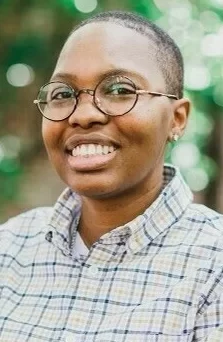 Ciera Crawford (pictured) has been promoted to chief Arts and Culture Hub editor at NPR, the network announced Nov. 17. Crawford came to the culture desk in 2021 from “All Things Considered,” where she was a supervising producer. “This is a new job as we restructured our newsroom/editorial group once everything was unified under a chief content officer,” NPR spokeswoman Isabel Lara told Journal-isms. Nick Charles, who was named NPR’s culture editor in September 2021, has been laid off. He told Journal-isms he has consulted and will be teaching in the spring.
Ciera Crawford (pictured) has been promoted to chief Arts and Culture Hub editor at NPR, the network announced Nov. 17. Crawford came to the culture desk in 2021 from “All Things Considered,” where she was a supervising producer. “This is a new job as we restructured our newsroom/editorial group once everything was unified under a chief content officer,” NPR spokeswoman Isabel Lara told Journal-isms. Nick Charles, who was named NPR’s culture editor in September 2021, has been laid off. He told Journal-isms he has consulted and will be teaching in the spring.
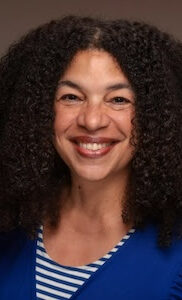 Karen Rundlet (pictured), who most recently worked as senior director for the journalism program at the John S. and James L. Knight Foundation, has been named CEO of the Institute for Nonprofit News, “the network driving the movement to reinvent journalism as a nonprofit, nonpartisan public service,” the institute said Wednesday. “At INN, she will lead growth and support of more than 425 news organizations that make up the INN Network, setting standards and best practices for philanthropy in news and advancing the innovation, business reinvention and equitable approaches reshaping the news field. . . . “
Karen Rundlet (pictured), who most recently worked as senior director for the journalism program at the John S. and James L. Knight Foundation, has been named CEO of the Institute for Nonprofit News, “the network driving the movement to reinvent journalism as a nonprofit, nonpartisan public service,” the institute said Wednesday. “At INN, she will lead growth and support of more than 425 news organizations that make up the INN Network, setting standards and best practices for philanthropy in news and advancing the innovation, business reinvention and equitable approaches reshaping the news field. . . . “
- NBC “Meet the Press” moderator Kristen Welker was honored Thursday with the Fourth Estate Award from the National Press Club. Kat Stafford, global race and justice editor for Reuters and a former national investigative writer at The Associated Press, won the Neil & Susan Sheehan Award for Investigative Journalism. John Aubuchon Press Freedom Awards went to Evan Gershkovich, the Wall Street Journal reporter imprisoned in Russia; and Iranian journalists Niloofar Hamedi and Elaheh Mohammadi (international). They were among the first journalists to report on the death in police custody of Mahsa Amini in September 2022. Asmini’s death set off some of the largest demonstrations in Iran in years, and Hamedi and Mohammadi’s coverage led to their unjust arrest,” the Press Club said Tom Jones of the Poynter Institute quoted from Welker’s remarks.
- Among the media people on Forbes magazine’s “30 Under 30” list for 2024 in North America are podcast company founder Camila Victoriano; Dillon St. Bernard, founder of a “social impact-focused creative agency”; Devon Blackwell of the New Yorker; Evan Bretos of The Washington Post; Dominic-Madori Davis of TechCrunch; Atalie Gimmel of Netflix; author Chloe Gong; novelist Iman Hariri-Kia; novelist Rebecca Kuang; newsletter author Hunter Harris; Aiyana Ishmael of Teen Vogue; GEN-ZiNE founder Anushka Joshi; cinematographer Mya-Breyana Morton and Paula Ngon of Conde Nast. They are “defining and driving the world of news and content.”
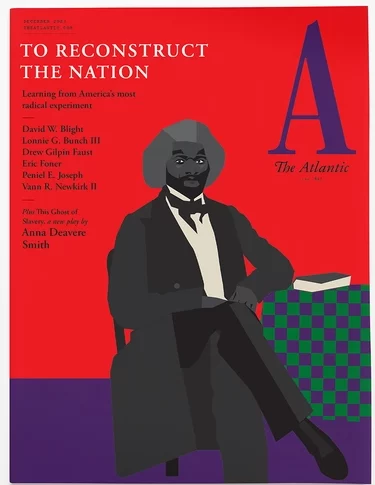 “The Atlantic is releasing in full ‘To Reconstruct The Nation,’ a special issue that, as editor in chief Jeffrey Goldberg writes today, is “meant to examine the enduring consequences of Reconstruction’s tragic fall at a moment— yet another moment — when the cause of racial progress faces sustained pressure,” the magazine wrote Nov. 13, heralding its December issue. “The centerpiece of the issue, which is led by senior editor Vann R. Newkirk II, is a new feature-length play by the actor, playwright, and Atlantic contributing writer Anna Deavere Smith, which appears along with essays by writers, historians, and scholars including Secretary of the Smithsonian Lonnie G. Bunch III, Jordan Virtue, Peniel E. Joseph, Drew Gilpin Faust, Eric Foner, and The Atlantic’s Vann R. Newkirk II, Adam Harris, and Yoni Appelbaum. . . . “
“The Atlantic is releasing in full ‘To Reconstruct The Nation,’ a special issue that, as editor in chief Jeffrey Goldberg writes today, is “meant to examine the enduring consequences of Reconstruction’s tragic fall at a moment— yet another moment — when the cause of racial progress faces sustained pressure,” the magazine wrote Nov. 13, heralding its December issue. “The centerpiece of the issue, which is led by senior editor Vann R. Newkirk II, is a new feature-length play by the actor, playwright, and Atlantic contributing writer Anna Deavere Smith, which appears along with essays by writers, historians, and scholars including Secretary of the Smithsonian Lonnie G. Bunch III, Jordan Virtue, Peniel E. Joseph, Drew Gilpin Faust, Eric Foner, and The Atlantic’s Vann R. Newkirk II, Adam Harris, and Yoni Appelbaum. . . . “

- “At a ceremony on 28 November in Brussels, the 31st annual Reporters Without Borders (RSF) Press Freedom Prize was awarded to Colombian investigative reporter Juan Pablo Barrientos for Impact, Egyptian blogger Mohamed Oxygen for Courage, Guatemalan newspaper editor Jose Rubén Zamora for Independence, and French photographer Karine Pierre in the ‘Lucas Dolega-SAIF’ Photo category, the organization reported. “Every year, the RSF Press Freedom Prize honours journalists and media outlets whose work has made an exceptional contribution to the defence or promotion of press freedom across the world. This year’s laureates were chosen from among 21 nominees from 18 different countries.”
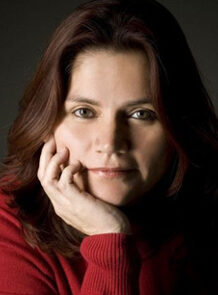 The Committee to Protect Journalists said Thursday it “strongly supports a Bogotá superior district court’s November decision to convict a former Colombian state security agent of aggravated torture against journalist Claudia Julieta Duque (pictured). The court determined that Rivera was guilty of psychologically torturing and harassing Duque, making intimidating phone calls, and spying on the journalist between 2001 and 2004 in retaliation for her reporting on the 1999 murder of journalist Jaime Garzón. Duque appeared at the 2018 conference in Miami of the National Association of Hispanic Journalists, discussing shocking first-person stories of unpunished violence against journalists, told by female reporters from Mexico, Venezuela and Colombia. More on Claudia Duque
The Committee to Protect Journalists said Thursday it “strongly supports a Bogotá superior district court’s November decision to convict a former Colombian state security agent of aggravated torture against journalist Claudia Julieta Duque (pictured). The court determined that Rivera was guilty of psychologically torturing and harassing Duque, making intimidating phone calls, and spying on the journalist between 2001 and 2004 in retaliation for her reporting on the 1999 murder of journalist Jaime Garzón. Duque appeared at the 2018 conference in Miami of the National Association of Hispanic Journalists, discussing shocking first-person stories of unpunished violence against journalists, told by female reporters from Mexico, Venezuela and Colombia. More on Claudia Duque
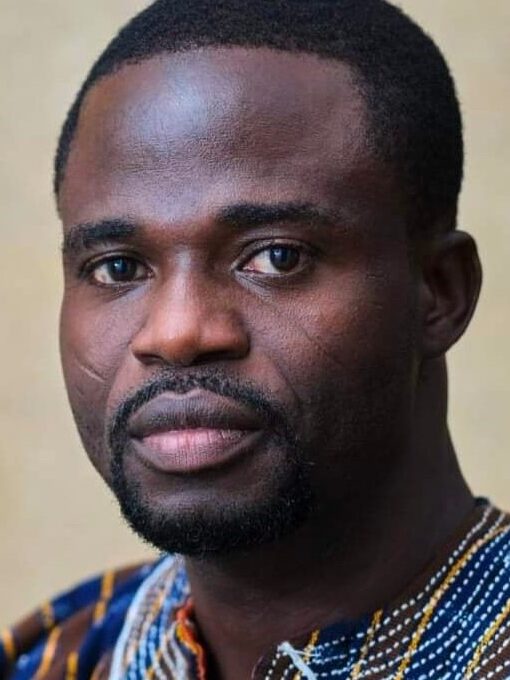 “The media landscape in Ghana has been experiencing a significant growth in numbers, but journalists and news organisations committed to quality journalism continue to dwindle,” according to Manasseh Azure Awuni (pictured), editor-in-chief of The Fourth Estate, a non-profit, public-interest, investigative journalism project of the Media Foundation for West Africa. Awuni told Patrick Egwu of the Reuters Institute Sunday, “This trend started when frequencies of radio, which is the most popular mass medium in Ghana, became part of the political spoils at the disposal of winning parties.”
“The media landscape in Ghana has been experiencing a significant growth in numbers, but journalists and news organisations committed to quality journalism continue to dwindle,” according to Manasseh Azure Awuni (pictured), editor-in-chief of The Fourth Estate, a non-profit, public-interest, investigative journalism project of the Media Foundation for West Africa. Awuni told Patrick Egwu of the Reuters Institute Sunday, “This trend started when frequencies of radio, which is the most popular mass medium in Ghana, became part of the political spoils at the disposal of winning parties.”
- “The ECOWAS Court of Justice in Abuja has ruled that that some sections of the Nigerian Press Council Act constitute a violation of citizens’ rights, including their right to freedom of expression, and must be immediately amended to align them with international best practices,” Ameh Ejekwonyilo reported Sunday for the Premium Times in Nigeria. “The court made the pronouncement in its judgement on a suit filed by two Nigerian journalists, Isaac Olamikan and Edoghogho Ugberease.” ECOWAS is the acronym for Economic Community of West African States.
To subscribe at no cost, please send an email to journal-isms+subscribe@groups.io and say who you are.
Facebook users: “Like” “Richard Prince’s Journal-isms” on Facebook.
Follow Richard Prince on Twitter @princeeditor
Richard Prince’s Journal-isms originates from Washington. It began in print before most of us knew what the internet was, and it would like to be referred to as a “column.” Any views expressed in the column are those of the person or organization quoted and not those of any other entity. Send tips, comments and concerns to Richard Prince at journal-isms+owner@
View previous columns (after Feb. 13, 2016).
View previous columns (before Feb. 13, 2016)
- Diversity’s Greatest Hits, 2018 (Jan. 4, 2019)
- Book Notes: Is Taking a Knee Really All That? (Dec. 20, 2018)
- Book Notes: Challenging ’45’ and Proudly Telling the Story (Dec. 18, 2018)
- Book Notes: Get Down With the Legends! (Dec. 11, 2018)
- Journalist Richard Prince w/Joe Madison (Sirius XM, April 18, 2018) (podcast)
- Richard Prince (journalist) (Wikipedia entry)
- February 2018 Podcast: Richard “Dick” Prince on the need for newsroom diversity (Gabriel Greschler, Student Press Law Center, Feb. 26, 2018)
- Diversity’s Greatest Hits, 2017 — Where Will They Take Us in the Year Ahead?
- Book Notes: Best Sellers, Uncovered Treasures, Overlooked History (Dec. 19, 2017)
- An advocate for diversity in the media is still pressing for representation, (Courtland Milloy, Washington Post, Nov. 28, 2017)
- Morgan Global Journalism Review: Journal-isms Journeys On (Aug. 31, 2017)
- Diversity’s Greatest Hits, 2016
- Book Notes: 16 Writers Dish About ‘Chelle,’ the First Lady
- Book Notes: From Coretta to Barack, and in Search of the Godfather
- Journal-isms’ Richard Prince Wants Your Ideas (FishbowlDC, Feb. 26, 2016)
- “JOURNAL-ISMS” IS LATEST TO BEAR BRUNT OF INDUSTRY’S ECONOMIC WOES (Feb. 19, 2016)
- Richard Prince with Charlayne Hunter-Gault, “PBS NewsHour,” “What stagnant diversity means for America’s newsrooms” (Dec. 15, 2015)
- Book Notes: Journalists Follow Their Passions
- Book Notes: Journalists Who Rocked Their World
- Book Notes: Hands Up! Read This!
- Book Notes: New Cosby Bio Looks Like a Best-Seller
- Journo-diversity advocate turns attention to Ezra Klein project (Erik Wemple, Washington Post, March 5, 2014)

